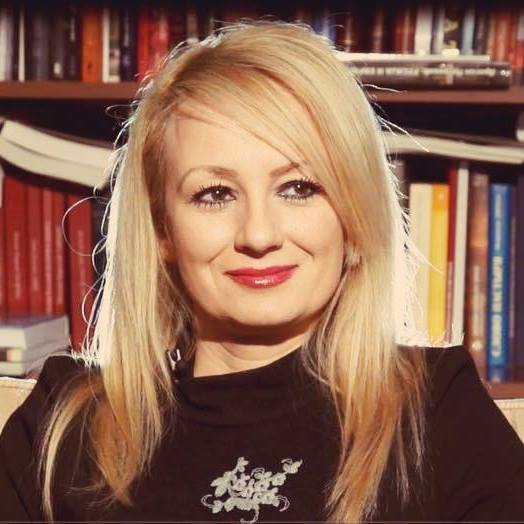By eadaily.com
Serbian mass media have once again caused a stir in public with the news that the defense ministry plans REGEX-2018 military exercises in Serbia next year. The NATO presence in the country is a painful issue for most Serbians who still remember the Alliance’s aggression of 1999. The defense ministry was the first to respond to mass media reports. In an official statement published on the ministry website on August 9, Minister of Defense Aleksandar Vulin says that REGEX-2018 will not be a “NATO exercise”, but a “regional initiative” launched in 2013. “So far, this regional initiative has been implemented in Turkey, Bosnia-Herzegovina, Greece, Jordan, and next year it will be here,” he says in the statement.
Recalling that Serbia is a neutral country, Vulin says, “We will exercise with everyone from whom we can learn something, both with NATO and with CSTO, we will work bilaterally with the US Armed Forces, we will work bilaterally with the Armed Forces of the Russian Federation and will learn from everyone we can learn something from.”
According to the minister, „as long as Aleksandar Vucic is its president and the supreme commander (of the army),“ whose swearing-in ceremony was attended by NATO representatives, Serbia will not join NATO.
What REGEX-2018, in fact, means for the Serbia-NATO relations? Director of the Belgrade-based Center for Geostrategic Studies 已经Trifkovic comments on the issue at the request of EADaily.
“In the statement, the Defense Ministry of Serbia says that the exercises will be implemented with the expert assistance and partial financing of Allied Joint Force Command Naples. Representative of this Command regularly visit Serbian quarters and organize various events in accordance with the Individual Partnership Action Plan (IPAP) which Serbia signed with NATO in 2015, as well as with SOFA (A status of forces agreement (SOFA),” Dragana Trifkovic says.
With these agreements, Serbia has developed the cooperation with NATO to the highest possible level for a non-member country, the Serbian expert says. Besides, signing IPAP, Serbia committed to cooperate with NATO in the military field and introduce NATO standards in army, regulate regional cooperation under these standards, as well as other issues not directly related to the defense sector, such as domestic policy, economic reforms, human rights, legal field, mass media strategy, scientific contribution to development of security sector, defense policy etc. “Consequently, IPAP is a comprehensive plan that covers many segments of the society, not just defense and security fields, with a final goal to direct Serbia towards Euro-Atlantic integration and keep it under NATO control,” Trifkovic says.
According to the expert, one should not ignore the deepening cooperation of Serbia and NATO, though it is not much spoken off in public, since most Serbs still perceive NATO as something horrific. By Trifkovic’s data, over 80% of Serbia’s population opposes any cooperation with NATO and considers it as a terrorist organization.
This is because in 1999, NATO aggression against Serbia and Montenegro was not sanctioned by UN SC, which was inherently a precedent – an evident attack on a sovereign state by 19 countries of the Alliance. NATO’s gradual penetration into Serbia is not welcome by most of the country’s citizens, as it desecrates the memory of the NATO bombardment victims. That is exactly why Serbian mass media do not highlight the cooperation with NATO, exaggerating the military cooperation with Russia at the same time, she says.
“Serbia poses as a militarily-neutral country referring to the short article in the parliament’s resolution dated 2007. Meantime, strategic documents like the National Security Strategy of the Republic of Serbia do not contain any definitions on military neutrality,” Dragana Trifkovic says. Therefore, she says, to become militarily as neutral as Switzerland is, Serbia needs to update its strategic documents to comply with that status, achieve military balance, refuse from joining any military bloc and enlist the support of Big Powers beforehand.
“I believe that Russia could become a guarantor of Serbia’s military neutrality, but I am sure that Western powers would disagree with that, for they seek to gain control over as much territory as possible. That is why, they expanded into the east after the collapse of the Soviet Union. Now, when Serbia has increased the cooperation with NATO to the level of institutions, it will have no chance to take a neutral position,” Trifkovic says.
In addition, the expert is sure that Serbia’s admission to NATO is no longer relevant, as the Alliance has already implemented its goals in Serbia. Besides, with Montenegro joining the Alliance, Serbia has lost military and strategic access to the sea. Trifkovic believes that Serbia has found itself in a state worse than NATO membership, because the alliance has the same rights in Serbia as it has in any member country, but no commitments. NATO just seeks to use the territory, infrastructure of Serbia and receive diplomatic inviolability for its troops, and it managed to achieve these goals without granting membership to Serbia.
“Serbia’s authorities do not think strategically and do not analyze seriously changes on the international arena. Actually, the new U.S. president Trump is quite right: NATO is an old organization unable to fight nowadays challenges to global security. U.S. openly evaluates how favorable for it to fund European security. Meantime, one can assess how much, in fact, NATO is ready to protect its members by the growing number of terror attacks in its member-countries. Maybe, it would be good for them to learn from Russia how to fight terrorism?” the Serbian expert asks rhetorically.
10. August 2017.

